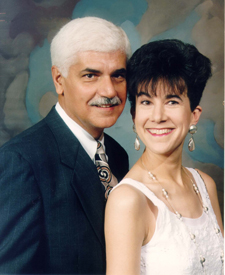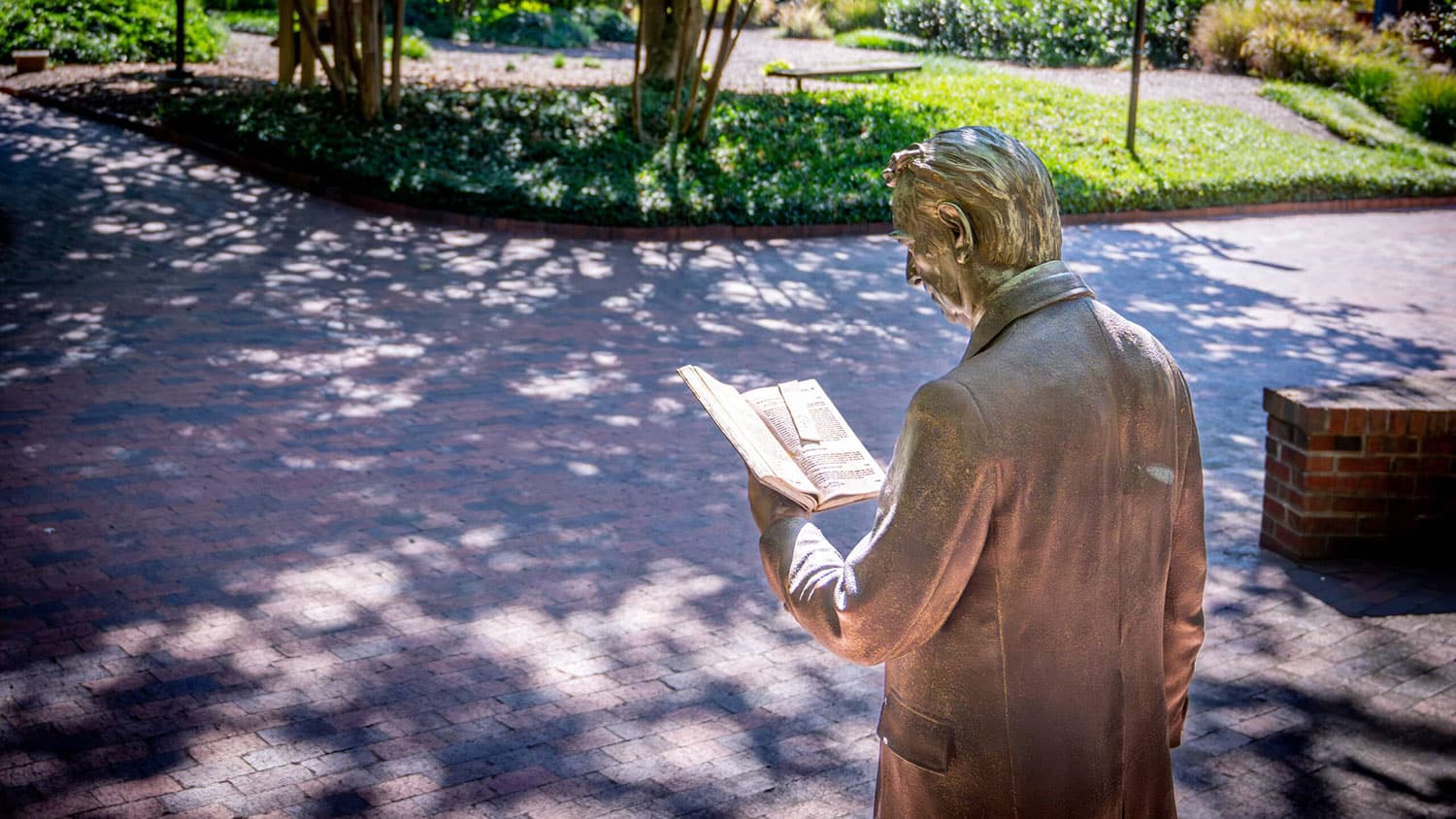Colleagues Remember Barthalmus
Dr. George Barthalmus, a longtime professor of zoology and biology who taught thousands of students and was a passionate advocate for undergraduate research, died last night.
Friends, colleagues and former students said no one embodied the ideals of NC State and its mission as a land-grant university better than Barthalmus.
“He was the epitome of everything from teacher to friend to mentor,” said Dr. Anita Flick, director of the Health Professions Advising Center and a former student. “He bled this university about as much as anybody could.”
Flick said Barthalmus, who came to NC State in 1970 as an assistant professor of zoology, had the ability to convey complex information in introductory biology and zoology classes in a way that was clear and relevant.
“He gave me an opportunity as a student to grow and develop my own ideas, while also teaching me at the same time,” Flick said.
A Mile a Minute
Barthalmus became a full professor in 1984 and was named an NC State alumni distinguished undergraduate professor in 1993. In 1998, he became associate dean and director of academic programs in the College of Agriculture and Life Sciences. Barthalmus retired in 2001, but later came back to the university as interim director of the University Honors Program and then director of the Office of Undergraduate Research.

Dr. Roger Callanan, assistant dean of undergraduate academic programs, said Barthalmus was an extraordinary adviser and friend to students. Barthalmus taught an estimated 16,000 students during his years at NC State.
“He lived his life so full,” Callanan said. “Every day he had a smile. Every day he had a project. He was one of those people who moved a mile a minute. You couldn’t help but be excited and dedicated in his presence.”
Barthalmus often talked about the importance of NC State remaining true to its mission as a land-grant university, particularly when it came to reaching out to students in rural areas who might not have the same high school academic opportunities as students from urban areas with more resources.
“It would be a shame to see a North Carolina student interested in poultry science have to go to Arkansas because he couldn’t get into NC State with an SAT score of 1,000,” Barthalmus said in a 2001 profile in NC State magazine. “I’m afraid—if we have fewer and fewer rural students—that curricula such as poultry science, food science, agronomy, soil science and crop science will fade away.”
Big Hair, Big Smile
Karl Smith a Raleigh dentist, said Barthalmus was one of the best teachers he had at NC State. He recalled Barthalmus showing up for class with his motorcycle helmet, a big head of hair and his ever-present smile.
“I had him for vertebrate biology,” Smith said. “That can be really monotonous. You’re basically studying the innards of animals. But he would bring the animals to life that he was describing, and tell you why you were learning a particular thing.”
Administrators who worked with Barthalmus said he was a powerful advocate for students and undergraduate research.
“George thought the university was here to help everybody,” said Dr. John Ambrose, dean of the Division of Undergraduate Academic Programs. “Anybody that came to him, he was willing to work with them. He reached out to any student who was interested in doing research.”
Dr. Ken Esbenshade, associate dean and director of academic programs in CALS, said Barthalmus had been helped by a mentor when he was a student and always looked for opportunities to serve in that role for students at NC State.
“He was student-centered in everything he did,” he said.

An Inspiration to Students
Dr. Judy Day, who worked with Barthalmus as assistant director of the Office of Undergraduate Research, said Barthalmus helped students realize their potential. She said students would leave excited about new opportunities after meeting with him .
Day recalled the last email she received from Barthalmus, earlier this week, asking about funding for a student research project.
“That was his passion,” she said.
Barthalmus also wrote murder-mystery novels set on college campuses. The proceeds from his books supported the George T. and Marina T. Barthalmus Life Sciences Scholarship Endowment.
“George was a huge proponent of students,” Day said. “The entire university is going to miss his driving force.”
- Categories:


